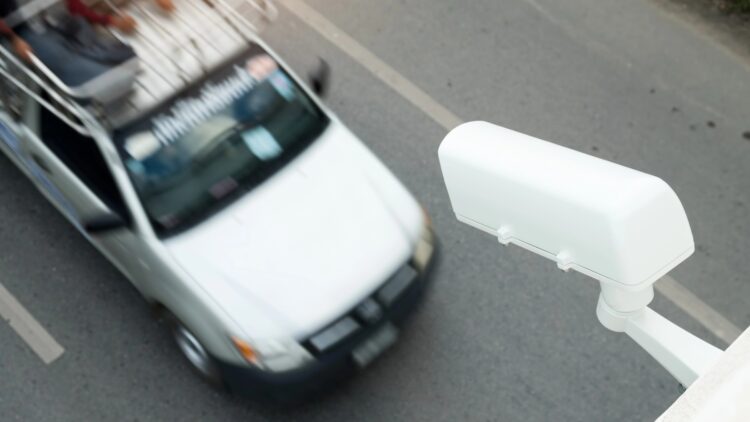Econolite, a company part of the Umovity group, has launched something that seems straight out of a futuristic movie: a traffic light that “sees” traffic in real time, adjusts the timing of each signal, and can even identify pedestrians and cyclists about to cross the street, ensuring greater safety. This incredible project is called Epiq Radar, and it’s being billed as AI radar. It was presented at the ITS World Congress in Atlanta and promises to be the most advanced urban mobility technology project in recent memory. It’s a high-precision radar with an HD camera and artificial intelligence to transform traffic flow in cities.
New technology for urban intersections
One of Econlite’s main goals with this project is to alleviate urban traffic, which is characterized by traffic jams, delays, and, unfortunately, accidents. The company aims to improve this situation with the Epiq Radar, as its sensor promises to improve the way traffic lights operate. Equipped with FMCW technology, the device offers a 110-degree field of view and detection ranges of up to 275 meters. With just two sensors, the device will be able to fully monitor a busy intersection, detecting vehicles, cyclists, and pedestrians with high accuracy.
Furthermore, the device will feature a 1080p camera with low-light sensitivity, which is important for increased reliability, as authorities will be able to visually validate the captured data, reducing errors and ensuring more efficient monitoring. A positive outcome of these changes, especially for drivers, is that they will spend less time stuck in traffic; pedestrians and cyclists will also have greater safety when crossing the road.
The results from Epiq Radar are very interesting. The company also claims that the new AI radar can track and classify up to 128 objects simultaneously, based on more than 500 unique detection. This represents a high level of detail, which will enable the identification of traffic patterns, thus ensuring real-time action to avoid congestion or mitigate risks in critical areas.
Technology that learns and adapts
The Epiq Radar project has a major advantage: its integration with the Centracs +Detect platform. This process will send radar files to a cloud-based processing system, where automated reports and constant monitoring will be generated. This integration means that the collected data can be used not only to regulate traffic lights, but also to create a historical record of the city’s traffic.
In the event of an accident, the radars and their sensors would feed the platform in real time, allowing the system to adjust alternative routes and prioritize other lanes for drivers in the same area, thus alleviating the impact of congestion. This adaptability is more than just a result of a global trend toward smart mobility, where every second saved is crucial when it comes to travel and reducing carbon emissions.
Direct impacts on everyday life
Econolite hopes to achieve something with Epiq Radar that will make a difference in people’s lives, a tool that can impact everyday life in cities. The less time people spend in traffic means a better quality of life, reducing stress levels and helping save money by reducing fuel consumption. For large cities, it’s an important step in the quest for more efficient, safe, and sustainable urban environments.
What can we expect from the future of AI radars?
Epiq Radar technology, previously announced at ITS Atlanta, is a way to encourage this market to reflect on urban mobility and rethink how we move around the city. This project, which combines artificial intelligence, precision radar, and cloud integration, makes Econolite a potential benchmark for a future where traffic is no longer a common everyday problem and can be managed intelligently and safely to improve quality of life.


